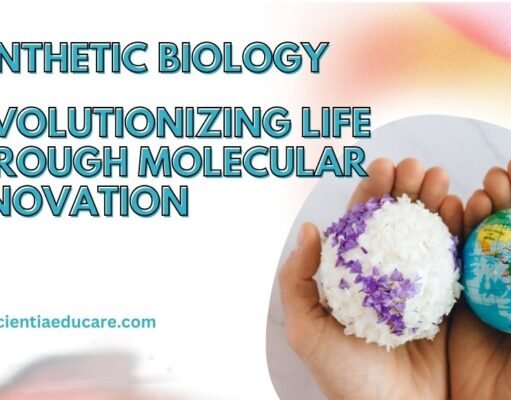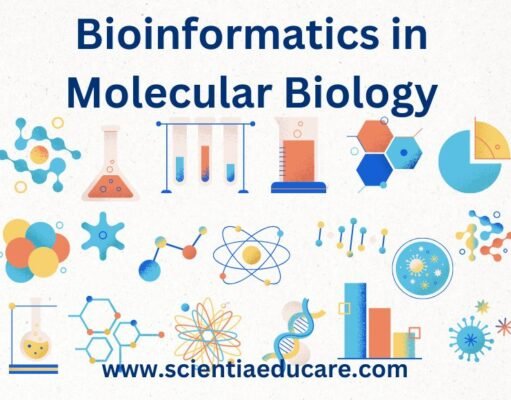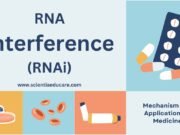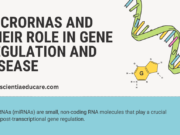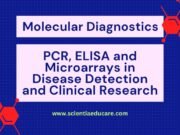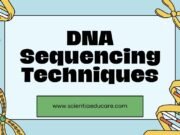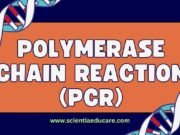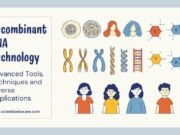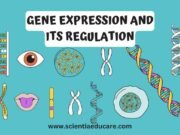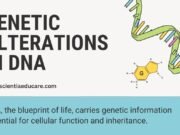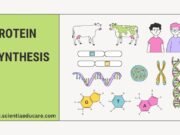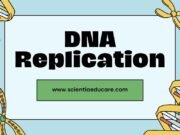RNA Interference (RNAi): Mechanism and Applications in Medicine
RNA Interference (RNAi): Mechanism and Revolutionary Applications in Modern Medicine
Introduction
RNA interference (RNAi) is a crucial biological process that regulates gene expression by inhibiting or...
Epigenetics: DNA Methylation and Histone Modification
Epigenetics: The Role of DNA Methylation, Histone Modification, and Chromatin Remodeling in Gene Regulation
Introduction
Epigenetics refers to heritable changes in gene expression that do not...
MicroRNAs and Their Role in Gene Regulation and Disease
MicroRNAs: Key Regulators of Gene Expression and Their Impact on Human Diseases
Introduction
MicroRNAs (miRNAs) are small, non-coding RNA molecules that play a crucial role in...
Stem Cells and Regenerative Medicine: Molecular Biology
Stem Cells and Regenerative Medicine: Molecular Biology's Role in Revolutionary Therapies
Introduction
Stem cells and regenerative medicine represent one of the most exciting and rapidly advancing...
Molecular Diagnostics: PCR and ELISA in Disease Detection
Molecular Diagnostics: The Role of PCR, ELISA and Microarrays in Disease Detection and Clinical Research
Introduction
Molecular diagnostics has revolutionized disease detection, enabling accurate, rapid, and...
Genetically Modified Organisms (GMOs): Benefits and Risks
Genetically Modified Organisms (GMOs): Advantages, Risks and Ethical Dilemmas in Modern Science
Introduction
Genetically Modified Organisms (GMOs) are organisms whose genetic material has been altered using...
DNA Sequencing Techniques: Sanger vs. Next-Generation
Comprehensive Analysis of DNA Sequencing Techniques: A Comparative Study of Sanger Sequencing and Next-Generation Sequencing (NGS)
Introduction
DNA sequencing is a fundamental tool in genomics, enabling...
Polymerase Chain Reaction (PCR): Principle and Applications
Polymerase Chain Reaction (PCR): A Comprehensive Study on Its Principle, Steps and Applications
Introduction to PCR
Polymerase Chain Reaction (PCR) is a revolutionary molecular biology technique...
Recombinant DNA Technology: Tools, Techniques and Applications
Recombinant DNA Technology: Advanced Tools, Techniques and Diverse Applications
Introduction
Recombinant DNA (rDNA) technology is a groundbreaking technique in molecular biology that allows scientists to manipulate...
CRISPR and Gene Editing: Advances in Molecular Biology
CRISPR and Gene Editing: Pioneering a New Era in Molecular Biology
Introduction
CRISPR (Clustered Regularly Interspaced Short Palindromic Repeats) and gene editing have transformed molecular biology,...
Molecular Basis of Cancer: Oncogenes & Tumor Suppressor Genes
Molecular Mechanisms of Cancer: The Role of Oncogenes and Tumor Suppressor Genes in Tumorigenesis
Introduction
Cancer is a complex disease characterized by uncontrolled cell division due...
Genetic Disorders: Inheritance Patterns and Molecular Basis
Genetic Disorders: Understanding Inheritance Patterns and Molecular Mechanisms
Introduction
Genetic disorders are medical conditions caused by abnormalities in an individual’s genetic material. These abnormalities can be...
Gene Expression and Its Regulation: Operon Model
Gene Expression and Its Regulation: Understanding the Operon Model and Epigenetics
Introduction
Gene expression is a fundamental biological process that allows cells to produce proteins and...
Mutations in DNA: Types, Causes and Effects on Gene Expression
Genetic Alterations in DNA: Types of Mutations, Causes, and Their Impact on Gene Expression
Introduction
DNA, the blueprint of life, carries genetic information essential for cellular...
Protein Synthesis: Steps of Translation and Role of Ribosomes
Protein Synthesis: The Intricate Steps of Translation and the Crucial Role of Ribosomes
Introduction
Protein synthesis is a fundamental biological process that enables cells to produce...
Post-Transcriptional Modifications in Eukaryotes
Post-Transcriptional Modifications in Eukaryotes: Mechanisms of Splicing, Capping, and Polyadenylation
Introduction
Gene expression in eukaryotic cells involves multiple intricate steps, from DNA transcription to the final...
Transcription in Prokaryotes and Eukaryotes
Transcription in Prokaryotes and Eukaryotes: Mechanism, Regulation and Key Differences
Introduction
Transcription is a fundamental biological process in which genetic information from DNA is copied into...
DNA Replication: Process, Enzymes and Significance
DNA Replication: Mechanisms, Key Enzymes and Biological Significance
Introduction to DNA Replication
DNA replication is a fundamental biological process that ensures the accurate transmission of genetic...
Genetic Code and Its Characteristics: Understanding the Blueprint of Life
Genetic Code and Its Characteristics: Deciphering the Blueprint of Life
Introduction
The genetic code is the set of rules by which information encoded in DNA and...
Enzymes in Molecular Biology: Types, Functions and Mechanisms
Enzymes in Molecular Biology: Types, Functions, and Mechanisms Explained
Introduction
Enzymes play a crucial role in molecular biology by catalyzing various biochemical reactions essential for life....


